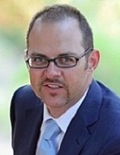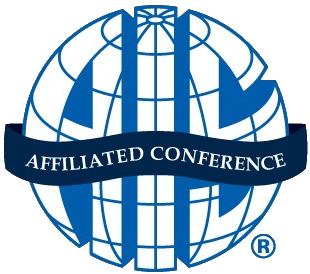11: Enterprise Systems Crossing Organizational Boundaries
Track Description
Theme
Noawadays, a variety of interorganizational processes are supported by modern Enterprise Systems (ES). Early versions of ES provided back office functionality that integrated a range of internal business processes. Modern ES have evolved to also include support for activities that cross the boundaries of a single organization such as Customer Relationship Management (CRM) and Supply Chain Management (SCM). The design of such large, integrated systems represents a major technical challenge, requiring new ways of thinking about business processes, system development, and enterprise architecture.
The successful implementation and use of these systems requires a significant investment of organizational energy and resources. Many organizations are now upgrading, replacing, or extending their original ES. Due to both their size and their integrated nature, ES are difficult to implement, and are associated with a variety of organizational changes. Organizations expect, but unfortunately do not always realize, significant benefits from their sizable investments in ES. Because of the importance of ES in organizations, educators continue to explore approaches for introducing ES into IS and other business curricula.
ES, per definition, cross organizational boundaries, as was already the case with early Enterprise Resource Planning (ERP) systems. However, we still choose "Enterprise Systems Crossing Organizational Boundaries" as the central topic for this track, because of three reasons. First, ES are becoming more and more interorganizational, i.e. integrating suppliers and customers. Second, due to outsourcing of noncore business processes and their supporting IS, and due to new software models such as ServiceOriented Architecture (SOA), SoftwareasaService (SaaS) and cloud computing, ES themselves are often positioned outside the organization. Third, due to (often rapid) changes in the external environment, organizations need to adapt their business processes and IS. During this process, they often encounter organizational boundaries (e.g. organizational culture, legacy systems) that are hard to cross. This track covers all related issues from a crossboundary perspective, including vendors and organizations using ES. For example, from a vendor perspective, changes in business models induced by cloud computing or SaaS requests from customers can be covered by submissions. Similarly, for organizations using ES, this track welcomes submissions related to the adaptability of the organization and its ES at the moment when changes from the inside or outside occur. The topics of this track align well with the ECIS 2015 conference theme, as ES become more and more networked, directly relating it to the “networked society”. Also, with ES research the IS artifact takes center stage, nicely fitting the ECIS conference focus. Finally, both ES and interorganizational systems are listed as “topics of interest” in the ECIS 2015 Call for Tracks.
Types of Contributions
Potential topics include, but are not limited to:
- ES and interorganizational systems
- ES and business agility, flexibility, and adaptability
- ES success, e.g. relativity thereof
- ES for public organizations, e.g. governmental or health care
- Ondemand ES
- Impact of ES on organizational architecture and vice versa, e.g. ServiceOriented Architecture (SOA)
- ESasaservice, i.e. softwareasaservice (SaaS) solutions
- Impact of the "Internet of things" and “Cyberphysical systems“ on future ES
- Integration of legacy applications in ES with stateoftheart components
- Mobile ES and related areas, e.g. mobile SCM, mobile CRM, mobile SRM
- Integration of collaboration technologies and (enterprise) social media within ES
- Big data and business analytics through ES
- New business models of ES providers, e.g. impact of ecosystems
Track Chairs
Marijn Plomp <primary contact>

Marijn Plomp is an Assistant Professor at the Knowledge, Information and Networks (KIN) group at the VU University Amsterdam, The Netherlands. He holds a PhD in Information Systems from Utrecht University (2012), based on his thesis “Maturing Interorganisational Information Systems”. Interorganisational IS remains one of his research foci, combined with an interest in ES. His research appears in various international conferences and journals, such as Electronic Markets, Supply Chain Management: An International Journal, and AMCIS. Marijn has served as a reviewer for various scientific journals and for over 10 AIS(affiliated) conferences such as ICIS, ECIS, and AMCIS. He is assistant editorinchief of the Journal of Chaincomputerisation and was a coprogram chair at the 15year anniversary conference of the Platform Chaincomputerisation. He served as session chair at both ECIS and AMCIS and was cochair of the preconference workshop “Largescale communication systems in search of better theories and methods” at ECIS 2013 in Utrecht.
Norbert Gronau

Norbert Gronau is the Full Professor for Business Information Systems and Electronic Government at the University of Potsdam, Germany. He was born in 1964 and got his Ph.D. in 1994 for a framework on a strategic management information system for the production management at the department of Computer Science at Berlin Institute of Technology. There he finished his habilitation thesis on sustainable frameworks for architectures of industrial information systems.
He is the president of Special Interest Group on Enterprise Systems (SIGENTSYS) at the Association of Information Systems (AIS).
Norbert Gronau is editor of the scientific journal Industrie Management journal for industrial business processes and the journal Productivity Management journal for production and logistics. He is author of more than 90 papers and author resp. editor of several books. He is lecturer at the South African Stellenbosch University for Knowledge Management.
Since 2007, Norbert Gronau is regular member of the German Academy of Technical Sciences and since 2011 member of the review board “Factory Science“ of DFG “Deutsche Forschungsgemeinschaft e.V.“ (German Research Foundation).
Alexander Maedche

Alexander Maedche is a Professor and Chair in Information Systems IV, Business School and Managing Director of the Institute for Enterprise Systems (InES) at the University of Mannheim, Germany. He earned his doctorate from the University of Karlsruhe. He has six years industry experience in largescale information systems, he held positions as IT manager in the Bosch Group and vice president product management in SAP AG. His research focuses on development, implementation and use of ES. He has published more than 100 papers in journals and conferences, such as the IEEE Intelligent Systems, AI Magazine, Information and Software Technology International Conference on Information Systems (ICIS), and Conference on Advanced Information Systems Engineering (CAISE). He has served and serves as associated editor for ICIS and ECIS and is a Programme Committee member of CAISE.
Marinos Themistocleous

Marinos Themistocleous is an Associate Professor and active researcher in the area of ES Integration and SOA at the Department of Digital Systems at University of Piraeus, Greece. He was formerly a senior lecturer and researcher at Brunel University (UK) and researcher and consultant in a leading European research group on Electronic Commerce (EC). He also retains close links with industry and has served as external consultant of the Greek Ministry of Finance (on eGovernment issues), ELOT (the Greek Standardization body), ORACLE UK, the Bank of Greece. He is also consultant of the European Commission and he evaluates research proposals that are submitted as part of the research framework. He has written five books on (a) Web Services and SOA, (b) electronic commerce, (c) Risk Management, (d) distance learning and (e) teleworking. Marinos has also served as the managing editor of the European Journal of Information Systems. Moreover, he has written numerous refereed journal and conference papers and he has been a conference cochair, track chair, and minitrack cochair to international conferences like HICSS and AMCIS, EMCIS, MCIS.
Associate Editors
- Jonathan P. Allen, University of San Francisco
- Frank Armour, George Mason University
- Ronald Batenburg, Utrecht University
- Carsten Brockmann, University of Potsdam
- Roger Bons, Business Engineering Institute St. Gallen
- J. Alberto Espinosa, American University
- Bart van den Hooff, VU University Amsterdam
- LarsOlof Johansson, Halmstad University
- Steve Kaisler, The George Washington University
- Peter Loos, Universität des Saarlandes
- Johan Magnusson, University of Gothenburg
- Piotr Soja, Cracow University of Economics
- Mary Sumner, Southern Illinois University Edwardsville
- Petra Schubert, University of KoblenzLandau
- Peter Seddon, University of Melbourne
- Renee Pratt, Washington & Lee University
Additional Information
Track topic coverage in other conferences and publications
ES, which have evolved from Materials Requirements Planning (MRP) systems, have been subject of research ever since their inception. Nonetheless, we strongly believe ECIS 2015 is a timely forum for addressing the topic of ES, because of the many relevant developments mentioned before. Previous and future (mini)tracks at AMCIS and HICSS prominently feature ES. Furthermore, a PREICIS workshop on ES is held on a regular basis.
The proposed track chairs are actively involved in these and other activities.
Norbert Gronau is running an AISaffiliated journal, AIS Transactions on Enterprise Systems.
Accepted submissions for this track can be fasttracked towards this journal.
At this stage, the proposed track chairs are in talks with editors of other journals for similar arrangements.
ECIS 2014 does not have a distinct ES track; ECIS 2013 had a track on “Enterprise Systems and Change, Competencies and Organizational Learning”. Traditionally, the European market for ES is very strong (e.g. SAP, Cordys and a variety of other ES vendors). The research on ES has been present ever since, and the proposed track chairs believe that they will attract a significant amount of submissions. In our opinion, ECIS 2015 in Germany is a very appropriate forum to include a track dedicated to ES.


